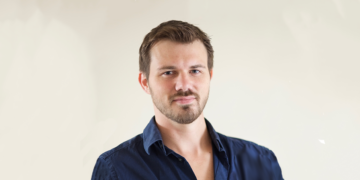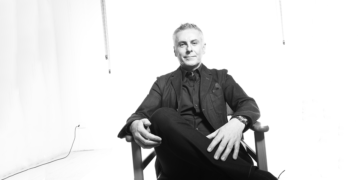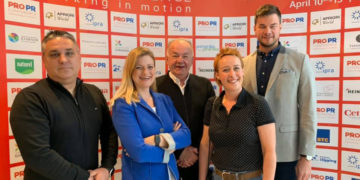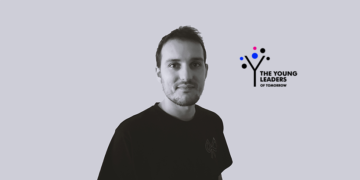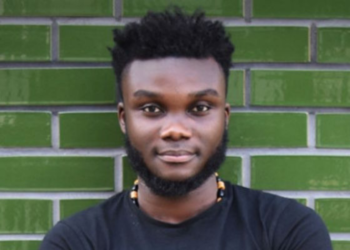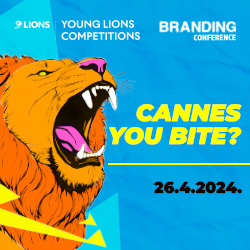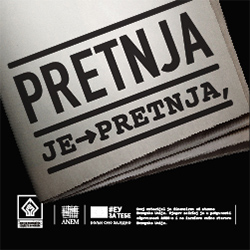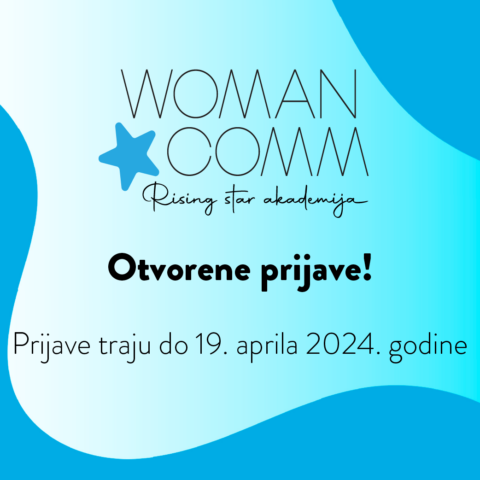Drugi jezik na kojem je dostupan ovaj članak: Bosnian
CorD magazine, which is published in Belgrade and is intended for diplomatic and other foreign representatives, in its latest issue published an interview with Srđan Šaper, President of the I&F McCann Group, which we bring to you in its entirety.
I think I was fortunate being born surrounded by books, in a family where both parents were intellectuals, and very early, I started exploring the shelf with various literature. That was some kind of a “Search engine” of my childhood, so early on I had the opportunity to develop an interest in many things. I often jokingly say that I was lucky enough to be born in the sign of a Libra – a sign simultaneously drawn to various, seemingly incompatible things.
My parents always supported my curiosity, which is constantly accompanied with certain indecisiveness, and that seems to be welcome while maturing. After grammar school, I enrolled medical school at the University. I was interested in psychiatry, especially Jung. However, halfway through my studies, I realised medicine demanded the whole person and that this was not the best option for me. I did not want to be a half-hearted doctor, because I was interested in experiencing other things, like music. So I dropped out of medicine and, at the age of 20, enrolled in directing at the Faculty of Dramatic Arts. At the same time, I started to experiment with music and “Idoli” music band.
CorD: With what ideals did you grow up with?
Srđan Šaper: My father was a university professor and a famous sports expert and my mother is a historian. They are both from Belgrade, with a developed network of social relations, and as a child, I was lucky to meet a lot of people who had left their mark on the life of our city. I matured with the idea that the important things for life are knowledge, expertise, good will and teamwork. But at the same time, I was fascinated by our civilizational task, which I perceived through Rilke’s idea that we humans are those whose cosmic task is to use their imagination to name things and give them meaning through art. Therefore, poetry has always been the queen of all arts for me. One more thing I learned from my parents was that optimism can always contribute to better results.
CorD: Was engaging in music an expression of rebellion? A valedictorian in school, who decided to become a geezer and shake off the geek image. How did your parents feel about that?
Srđan Šaper: I went to the “Eighth Belgrade High School”, which, unfortunately, no longer exists, and which was very liberal. Being valedictorian there had a positive connotation – you had to be a successful student, but also be accepted by your peers. I had a large number of excellent professors, but also friends from that time. Vlada Divljan was in my class. We started hanging out by making music; he played the guitar and we sang together, something like Simon and Garfunkel. At that time we travelled every summer by “Inter-rail” and hitchhiking around Europe. We were backpackers of the ‘70s and often performed as street musicians in European cities, thus earning additional money for our travels. We mainly performed folk songs, Serbian, Macedonian and others. So we actually started our musical careers at the age of 16. On the other hand, Nebojša Krstić was my friend from medical school. At that time in Belgrade, he had an impressive collection of new wave records and was very familiar with all of the latest developments in music. The two of us set up my first band, which was called “Dečaci” (Boys). Vlada had the jazz-rock band “Zvuk ulice” (The Sound of the Street), and he felt it didn’t have serious prospects. So one day, in the autumn of 1979, the three of us decided to perform together under the name Dečaci. Sometime later we were invited to perform at the Palilula rock guitar festival “Rok gitarijada”, that was fun for us on condition that we figured out a ridiculous name for a single use.
The name “Idoli” (Idols) sounded completely camp, and so we used it. However, we soon realised that this name had in fact chosen us, and it remained with us.
 CorD: The band VIS Idoli is considered a pioneer of the New Wave in Yugoslavia. According to the opinion of many, your songs were considered provocative, many of them even for today. Were you wary of the reactions of the public?
CorD: The band VIS Idoli is considered a pioneer of the New Wave in Yugoslavia. According to the opinion of many, your songs were considered provocative, many of them even for today. Were you wary of the reactions of the public?
Srđan Šaper: We didn’t have any kind of fear, only excitement about what was going to happen. And what happened was the lightning fast success for us and the entire New Wave in Yugoslavia. In less than three or four months, we were in high demand throughout the country. We recorded four records and became more popular with each one. At that time, it was more difficult to make a record, but once it had been recorded, it was much easier to reach a large number of potential listeners. You had two channels on national TV, Studio B, Beograd 202, Jukebox and a few other magazines.
CorD: The regional edition of Rolling Stone Magazine declared the album “Defence and the last days” (Odbrana i poslednji dani) as the best on the territory of the former Yugoslavia since 1955. Did you expect it to become a cult album?
Srđan Šaper: I did not think that “Defence and the last days” would become quite a cult album, but I did hope that it would have a serious impact on our rock music. We approached that album very meticulously. We thought about every detail, not only musical, but also textual, visual. It was a mixture of everything that was happening to us or we were obsessed with, something like a diary of a creative autumn and winter. For listeners, that album marked different things, and naturally it was accompanied by different interpretations and classifications, but for us in the band, it was significant to the extent that we wanted to see how far we could go in a musical experiment, and how free we could be from any kind of rules. We wanted to be free.
CorD: Today, as an expert in marketing, what would you object to or add when it comes to the career of Idoli? Was that band a successful project?
Srđan Šaper: Of course I consider “Idoli” as my successful project! What I would maybe object to is that we didn’t last longer, because we would probably have discovered a lot more interesting things within ourselves. However, near the end, that wonderful feeling of freedom disappeared and we gave in to the burden of reality. So, parting ways was probably the best thing we could do under the circumstances.
CorD: It is interesting that during your exceptional popularity as a musician, acting in films “Šumanović, Comedy of an Artist” and “Strangler vs. Strangler”, you also engaged in marketing. What was crucial for that transition from the world of arts to business?
Srđan Šaper: Very quickly after “Idoli” I began to work in marketing. Then I really did diverse things: I wrote film columns, worked on video essays for the show “Popovanje” (Preaching) on RTS, led some radio shows. As for acting, it was rather casual. This was not acting really, but rather acting-like participation in projects of some of my dear friends, Miša Radivojević, Šijan, Pajkić, Hrvoje Horvatić and, finally, Boris Miljković and Branimir “Tucko” Dimitrijević. Just a few days ago, after 20 years, I watched their TV movie “Šumanović Portrait of an Artist”, where I had an Alec Guiness-isan multifold role as Rastko Petrović. I also composed music and solo songs for “Šumanović”. That film is really exceptional. In their second TV movie, “Russian Artistic Experiment”, I played the constructivist painter Nathan Altman. At that time I also started hanging around with Boris and Tucko. We felt we could make advertisements in between serious art, so we established the so-called “permanent working community” under the name of Soda film. In the late ‘80s, I did hundreds of short musical themes for ads and slowly stepped into the world of advertising.
 CorD: You have been in advertising for almost 20 years. You got into the business when marketing was still in its infancy in our country and remained throughout those “restless” 1990s. Today you run one of the most successful communications systems. What were the biggest challenges during those times? Is it like in your advertisement “Either you are, or you’re not”?
CorD: You have been in advertising for almost 20 years. You got into the business when marketing was still in its infancy in our country and remained throughout those “restless” 1990s. Today you run one of the most successful communications systems. What were the biggest challenges during those times? Is it like in your advertisement “Either you are, or you’re not”?
Srđan Šaper: The “Soda Film” working community lasted until the beginning of the war and the collapse of Yugoslavia. In the period from 1990 to 1995, we all got by however we could. Together with Branimir Dimitrijević Tucko, I tried to do some campaigns in Greece, Russia and so on. At the same time I was engaged in political campaigns in our country. That was party work because I have been a member of the Democratic Party (DS) since 1990. I worked on the first campaign after the introduction of the multiparty system, when the DS slogan was “Break it cleverly” (Prelomite pametno). Afterwards, in 1993, I was the creative director of the campaign “Fair” (Pošteno), after which Zoran Đinđić became the party leader. Finally, in 1995, Branimir Dimitrijević and I set up an advertising agency, anticipating the end of the war and the lifting of sanctions. Of course, after the Dayton Agreement it looked as though things would develop quickly and favourably, and we set to work. Two years later, we decided to part ways and I launched McCann. I actually made a partnership agreement with the large global agency “McCann Erickson” that lasts to this day. Next year we will celebrate twenty years of our establishment. Of course, we had a setback in 1999, when the war and bombing discontinued our operations. The period from June 1999 to 5 October 2000 was the biggest challenge for the survival of our agency. We were left with just two or three local clients with whom we worked in that period, and thus we survived as long as we could. With the democratic changes, the opening up of the country and the abolition of the external walls of sanctions, our industry gained a great uplift, which lasted until about 2008 and the global economic crisis. Since then there has been a standstill in terms of marketing and media investments, both in Serbia and throughout the region. And there doesn’t seem to be any change coming in this respect anytime soon.
Of course, from a historical bird’s eye perspective, this entire time of our lives will probably be known as the “era of the breakup of Yugoslavia”. When you summarise everything we have experienced in the last 40-odd years, I would say that we have actually spent our lives in an era of destruction, regardless of the years, days and moments in which it seemed that our days were marked by creativity and construction.
CorD: Two years ago, agency McCann Beograd was the first to be declared the most successful in the region. Last year, it was the most successful in Serbia. You won two of the most significant awards in the advertising world, Cannes Lions. You were awarded the Serbian Association for Market Communications UEPS Award for Lifetime Achievement. Do awards raise the bar for you to be even better?
Srđan Šaper: I recently found an old advert, probably by the first advertising agency in Serbia, from 1890. The company was naturally called the “First Serbian Advertising Agency”. The office of the agency, which was founded by two friends, was in Vasina Street. The advert reads that they exist to make advertisements useful (“da bi od oglasa bilo vajde”). I decided to put that at the entrance of our agency, like some kind of motto, alongside the global motto of McCann, from way back in 1907 – Truth well told. It seems to me that both of them sum up in the best way the reason advertising agencies exist. In order to make them useful like the “First Serbian Advertising Agency”, we create ads, work on media plans, and placement of ads. We want to be both efficient and effective; and different, to cut through the forest of information that exists in the world today. We want to be accurate and precise and creative and unusual. Awards are, naturally, something that is very important in our world, and the two Cannes Lions we were awarded, first in our region, testify to the fact that we are both successful and recognised. However, awards are primarily an expression of the creative culture that exists in the agency, and, on the other side, it is something that should always be in the function of realising the business results of our clients. Thus, that is our goal – business results through advertising, to make advertisement useful (“da bi od oglasa bilo vajde”)!
 CorD: More than a thousand employees have passed through your agency. Many are successful in their trades, whether it is in marketing or business, culture, public life etc. Today, you employ more than 600 people. You are still committed to developing people. Why? Are you proud of giving a chance to young people?
CorD: More than a thousand employees have passed through your agency. Many are successful in their trades, whether it is in marketing or business, culture, public life etc. Today, you employ more than 600 people. You are still committed to developing people. Why? Are you proud of giving a chance to young people?
Srđan Šaper: What is important for me is hiring creative people who are able to do campaigns that are absolutely at the global level. The awards we won were primarily due to their dedicated work. Everything we do, we do in the same way as it is done by agencies in the most developed countries. Of course, we have an opportunity to use unique knowhow from our network, but we really invest a lot in our own knowledge, strategies and processes. In some technological and digital applications, we have repeatedly been more inventive than our colleagues in Western Europe or North America. Like it or not, marketing is at the foundation of every healthy economy. If it wants to be economically strong, Serbia must have successful marketing agencies in order to create, define, and design products or services and market its brands in the region or in the world. In my opinion, we have people who know how to do that brilliantly, but unfortunately there are still very few successful Serbian brands that could be competitive in the region or in Europe. Regarding your question, of course I’m very proud of all 1,000 people who have passed through our agency over the years, in a fatherly way.
CorD: You started with one agency. Over the years, you founded agencies in the region. Last year, you took over agencies in Croatia. This year, you’ve expanded your operations to Norway, Sweden, Denmark and Finland. Where does the idea to expand to Nordic regions come from?
Srđan Šaper: While thinking about our company, we came to the conclusion that it should develop in every sense – geographically, in terms of quality and number of services, as well as in terms of the knowledge we can offer our clients. We would get weaker if we remained limited to our region alone. A company is like a large aircraft that must take off when it reaches the appropriate speed on the runway, it cannot give up on taking off. The opportunity to expand into the Nordic region arose and we accepted that challenge. IPG, holding company of the McCann Worldgroup, recognised us as long-term partners and gave us a chance to take over operations in northern Europe. The idea is to creatively intertwine the work and experience of our agencies in the south and the north of Europe. I believe some of our previous experiences and ideas will be valuable for the Nordic market, primarily when it comes to the perception of the power of the whole region. And we really have excellent people there, as well as here. We intend to create a flow of our people from north to south and vice versa. I hope the results will be inspirational.
 CorD: How did the employees in the McCann agencies in the Nordic region react to a new owner from Serbia?
CorD: How did the employees in the McCann agencies in the Nordic region react to a new owner from Serbia?
Srđan Šaper: Very positively. I think they liked my biography. They recognised me as a man who is ready to combine curiosity, action and entrepreneurship, in order to produce a better result. In the end, it is interesting to arrive to Nordics from the Balkans after achieving results here by enlarging, perceiving a larger perspective and possibilities, and not succumbing to Balkanisation, i.e. process of breaking into pieces and disintegration that is, unfortunately, named after our peninsula and not necessarily by only our fault.
CorD: What does this combination of the European south and north bring to our region?
Srđan Šaper: I believe the vast experience in branding, strategy and design that exists there will be very important for us in the south. Not to mention work, business and human ethics and perception of the company’s value, business, environment, country. I feel we will all benefit from that. Finally, I hope we will be able to present to our existing and potential northern clients the benefits of investing in Serbia and our region. So, if we are successful it will be good for everyone.
CorD: Being more and more successful over the years is usually denied in Serbia. It seems that we keep denying and disputing someone’s success. What’s next? What motivates you to go on?
Srđan Šaper: Business and art are very similar, in the sense that you are dealing with the future. You want to create something, and you have no idea whether you will succeed. You are led by your skills, of course, know-how, experience, everything that makes you feel certain of your endeavour. But you will not succeed without inspiration and intuition. Sometimes you need to start; sometimes it’s better to miss out on something; sometimes what comes at the end is better than what was intended in the beginning, etc. There are many analogies. The essence is in the challenge. For us it is being in the Balkans, being in northern Europe. Tomorrow we may be somewhere else in this region or in Africa. But not to be carried away by great ideas, all this can work only if we are good in our base, and if we are aware that, at the beginning and at the end of all that we do, are our clients and their success. Both business and art are domains that make you create in solitude, while the results are achieved only by many. And it’s nice that every failure always creates incentives for moving on. You are always at some kind of beginning, no matter how old you are. In fact, in some ways we are all always at the beginning at any given moment.






